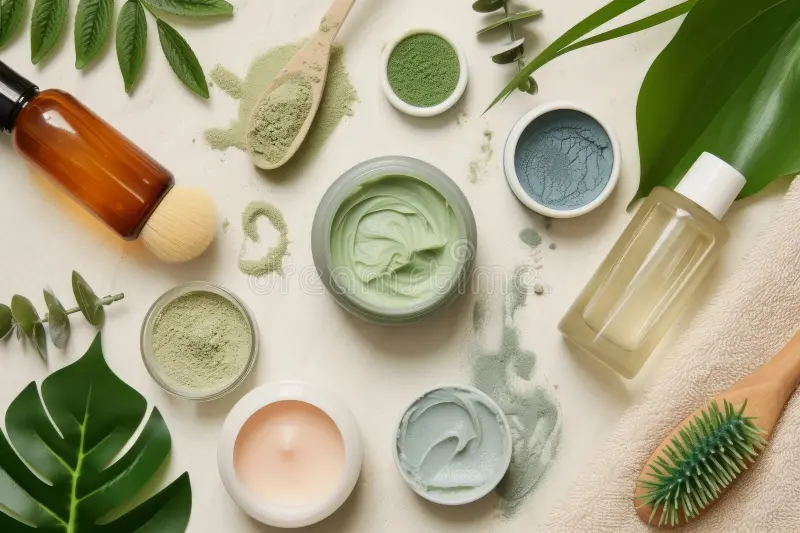The Truth About Anti-Aging Products: What Works and What Doesn’t
The beauty industry is flooded with anti-aging products that promise to erase wrinkles, restore elasticity, and bring back youthful skin. But with so many options on the market, it can be challenging to distinguish between what truly works and what’s just marketing hype. This comprehensive guide delves into the science behind anti-aging products, separating fact from fiction, so you can make informed decisions about your skincare routine.
What Causes Skin Aging?
Before diving into anti-aging products, it’s important to understand what causes skin aging. Aging is influenced by two factors:
- Intrinsic Aging:
This is the natural aging process that occurs with time. Collagen and elastin production slow down, skin loses moisture, and cell turnover decreases, leading to fine lines, wrinkles, and sagging. - Extrinsic Aging:
Environmental factors like UV exposure, pollution, smoking, and poor diet accelerate skin aging. These factors damage the skin’s barrier and lead to premature wrinkles, pigmentation, and dullness.
Most anti-aging products aim to address one or both of these causes.
What Works: Proven Ingredients in Anti-Aging Products
The effectiveness of anti-aging products boils down to their active ingredients. Here are the scientifically-backed components you should look for:
1. Retinoids (Vitamin A Derivatives)
- How They Work:
Retinoids stimulate collagen production, increase cell turnover, and improve skin texture. They’re highly effective at reducing fine lines, wrinkles, and pigmentation. - Best Options:
Prescription-strength retinoids (like tretinoin) are the most potent, but over-the-counter retinol and retinaldehyde are milder alternatives. - What to Watch For:
Retinoids can cause irritation, redness, or peeling, so start with a low concentration and use it a few times a week.
2. Vitamin C (Ascorbic Acid)
- How It Works:
Vitamin C is a powerful antioxidant that neutralizes free radicals, brightens the skin, and boosts collagen synthesis. - Best Options:
Look for serums with 10–20% vitamin C in a stable formulation (often paired with vitamin E and ferulic acid for enhanced effectiveness). - What to Watch For:
Store vitamin C products in dark, airtight packaging to prevent oxidation.
3. Hyaluronic Acid
- How It Works:
This hydrating powerhouse attracts moisture to the skin, plumping up fine lines and giving the skin a smoother appearance. - Best Options:
Hyaluronic acid serums and moisturizers are effective for all skin types, including sensitive skin. - What to Watch For:
Use it on damp skin to maximize its hydrating effects.
4. Peptides
- How They Work:
Peptides are amino acids that signal the skin to produce more collagen and elastin, improving firmness and elasticity. - Best Options:
Copper peptides and matrixyl are common and effective anti-aging peptides found in serums and creams. - What to Watch For:
Results may take time, so consistency is key.
5. Sunscreen
- How It Works:
The most critical anti-aging product, sunscreen protects against UV-induced damage, preventing wrinkles, dark spots, and skin cancer. - Best Options:
Use a broad-spectrum sunscreen with SPF 30 or higher daily, regardless of the weather. - What to Watch For:
Reapply every two hours if exposed to the sun for prolonged periods.
6. Alpha Hydroxy Acids (AHAs) and Beta Hydroxy Acids (BHAs)
- How They Work:
AHAs (like glycolic acid) exfoliate the skin’s surface, while BHAs (like salicylic acid) penetrate pores to clear impurities. Both improve texture and tone. - Best Options:
Products with 5–10% AHA or 2% BHA concentrations are effective for exfoliation. - What to Watch For:
Always pair these acids with sunscreen, as they can increase sensitivity to the sun.
What Doesn’t Work: Ingredients and Products to Avoid
Not all anti-aging products live up to their claims. Here are some common red flags:
1. Collagen Creams
- Why They Don’t Work:
Collagen molecules are too large to penetrate the skin. While they can provide surface hydration, they won’t boost collagen production deep within the skin.
2. Snake Oil and Exotic Extracts
- Why They Don’t Work:
Ingredients like “snake venom” or exotic plant extracts often lack scientific backing. They’re more about marketing than real benefits.
3. Instant Wrinkle Fillers
- Why They Don’t Work:
These products provide temporary results by plumping the skin or filling in lines, but they don’t address the underlying causes of aging.
4. Products with Minimal Active Ingredients
- Why They Don’t Work:
Many products contain ineffective concentrations of active ingredients. For example, a moisturizer labeled as “anti-aging” may have a negligible amount of retinol or peptides.
5. Excessive Fragrances
- Why They Don’t Work:
Added fragrances can irritate the skin and provide no anti-aging benefits.
How to Build an Effective Anti-Aging Routine
An effective routine doesn’t have to be complicated. Focus on layering the right ingredients:
- Morning Routine:
- Gentle cleanser
- Vitamin C serum
- Moisturizer with hyaluronic acid
- Broad-spectrum sunscreen
- Evening Routine:
- Makeup remover (if needed)
- Gentle cleanser
- Retinol or peptide serum
- Moisturizer to lock in hydration
Lifestyle Tips to Complement Anti-Aging Products
Skincare products are just one piece of the puzzle. Adopt these habits for better results:
- Stay Hydrated: Drink plenty of water to keep skin plump and hydrated.
- Eat a Balanced Diet: Focus on antioxidant-rich foods like fruits, vegetables, and nuts.
- Sleep Well: Aim for 7–9 hours of sleep to allow your skin to repair.
- Avoid Smoking and Excess Alcohol: These habits can accelerate aging and damage skin cells.
- Exercise Regularly: Exercise boosts circulation, giving your skin a healthy glow.
The Verdict
The truth about anti-aging products lies in understanding which ingredients are backed by science and maintaining realistic expectations. While no cream can entirely stop aging, the right products can slow the process, improve skin texture, and enhance overall radiance. Combine proven ingredients like retinoids, vitamin C, and sunscreen with a healthy lifestyle to achieve the best results.
Remember, consistency is key. Anti-aging isn’t about quick fixes—it’s about taking small, effective steps to care for your skin over time. Start today, and enjoy healthier, more vibrant skin for years to come!


